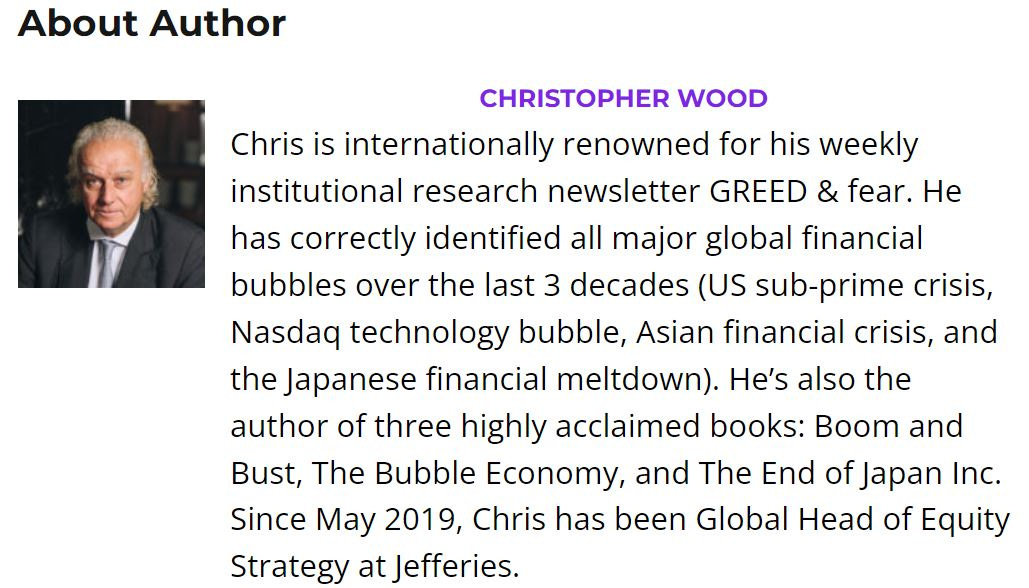Making Sense of Trump's Worldview - "Spheres of Influence"
Author: Chris Wood
The most interesting, and to most people doubtless the most surprising, part of Donald Trump’s inauguration speech back in January was his statement that he will take the Panama Canal back.
Remember that full control of the canal was given to Panama at the end of 1999 based on the treaties signed in 1977 by then American President Jimmy Carter and then Panama military leader Omar Torrijos.
Trump’s declaration of intent confirmed that Trump’s aim is to assert a new Monroe Doctrine, be it as regards Panama, or Greenland, or even the issue of making Canada the 51st state.
Thus, Trump has stated that the US needs to take control of Greenland from Denmark in the interest of “international security”.
He has also called Canadian Prime Minister Justin Trudeau “governor” of the “Great State of Canada”.
For the record, the Monroe Doctrine of 1823 warned European powers not to interfere in the affairs of the Western Hemisphere.
If the American president is, by all accounts, serious, the reality is that many regarded his initial comments on the above issues as a bit of a joke.
But to this writer it highlights how Trump tends to view the world in terms of spheres of influence.
For such reasons, he is much more concerned about geopolitical issues closer to home whereas in Europe he maintains his longstanding view that Europe should pay much more for its own defence, 5% of GDP for NATO members to be precise.
Similarly, one reason Trump has been much sympathetic to the Russian position on Ukraine is that he has looked at a map and understands that Ukraine entering NATO puts NATO on Russia’s border.
The same “sphere of influence” view of geopolitics may cause a naturally more isolationist Trump to take a different view of the Asia Pacific region in the sense that he will understand that China will want to be the dominant power in its own backyard.
This creates potential issues for the likes of the Philippines, which under President Ferdinand Marcos has explicitly sided with America, and even for Japan, where there is no Shinzo Abe to build a personal relationship with Trump.
This is also a potential problem for Taiwan where the risk is that Trump views the country as a piece of real estate to trade in a deal with the mainland.
But the rest of Asia will be relieved if American foreign policy under Trump retreats from the “you are either with us or against us” way of thinking.
The last thing most countries in Asia want is to be forced to take sides when it comes to navigating the tensions between America and China.
It is worth noting that Indonesia joined the BRICS group as a full member on 6 January while Malaysia and Thailand have become “partner countries” of the group from 1 January.
Tiktok and Trump's Strategy on China Negotiations
Meanwhile, Trump’s stance on the TikTok issue confirms yet again that he is not in the national security camp.
Instead, he wants to use the TikTok issue as leverage in any negotiation with China over tariffs by stating that America should own half of the short-form video platform.
Meanwhile, this writer’s attention was caught recently by a seemingly well sourced article in the New York Times late last month which reported how Trump is interested in negotiating a broad deal with China which would extend beyond trade (see New York Times article: “Trump sees scope for a broader deal with China” by Ana Swanson, 22 February 2025).
Interestingly, the article quoted one diplomatic source as saying that one China offer could include “Chinese investments in the US that would create an estimated half a million jobs in industries like solar, electric vehicles and batteries”.
The article also reported that Elon Musk has expressed confidence that a deal could be made with China and has told Trump that it is important for the US to work with China to avoid heightened tensions.
Still the hopes of an improved relationship raised by the above article are seemingly in total contrast to a presidential memorandum issued by Trump on 21 February called “America First Investment Policy”.
This paper reads like it has been written by members of the National Security Lobby who are conspicuous by their absence from the Trump administration but who were essentially running China policy in the Biden administration.
Thus, the memo ordered the use of “all necessary legal instruments” to curb Chinese affiliated investments in critical sectors.
It also describes the People’s Republic of China as an adversary and says, among other things, that the PRC is “increasingly exploiting United States capital to develop and modernize its military, intelligence and other security apparatuses”.
Given such contradictory signals it is no wonder that investors are confused while, more importantly, corporates will be delaying investment decisions.
Still in spite of the current noise, this writer’s base case is that a deal will be done by Trump with China which will not be dictated by the National Security Lobby, just as Trump’s policy towards Ukraine is directly at odds with the stance of the National Security Lobby.



The Baltics and Finland border Russia and are in nato